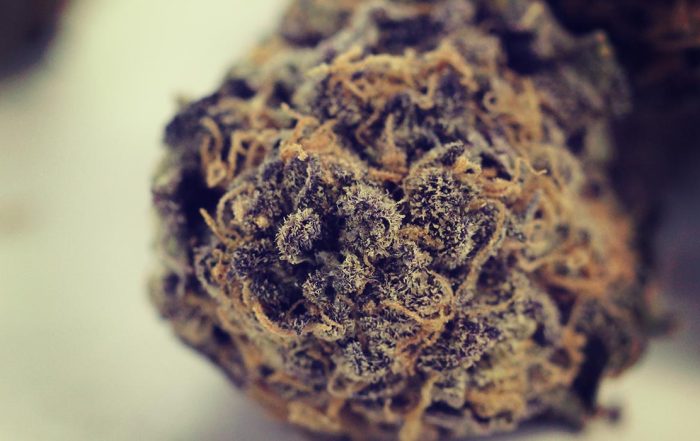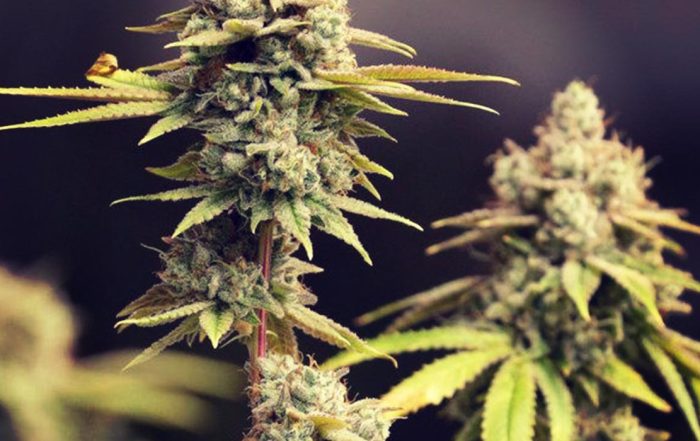Kansas Marijuana Laws
It is illegal to possess, use or grow marijuana for any purpose in Kansas. CBD tinctures and topicals containing 0% THC is legal, but smoking and vaping CBD flower is not permitted. The state’s police continue to pursue marijuana offenses that come with severe penalties for even first time offenders. Those charged with personal possession could face up to 6 months in prison and a $1,000 fine.

LAW BREAKDOWN
LAW BREAKDOWNS
Anti-marijuana laws are particularly harsh in Kansas, where use of the drug is only permitted for limited medical use. The maximum penalties are highly punitive, including potentially massive fines.
Possession
Possession of any amount of cannabis is a misdemeanor, punishable by up to 6 months in jail and $1,000 in fines.
Any amount more than 450 grams is classed as possession with intent to supply, a felony punishable by anything from 10 months probation to 42 months in prison, depending on the severity of the charge, plus up to $100,000 in fines.
| Offense | Penalty | Incarceration | Max. Fine |
|---|---|---|---|
| CBD products with 0% THC | None | None | $ 0 |
| Any amount | Misdemeanor | 6 months | $ 1,000 |
With Intent to Distribute |
|||
| 450 g or more | Felony | 10 months probation – 42 months* | $ 100,000 |
| * Sentence determined by category and severity drug severity level | |||
Scroll to see the rest of the table.
Sale and Distribution
Sale, delivery, or trafficking of any amount of marijuana is a felony in Kansas, and punishments range substantially depending on the amount involved. For sale of less than 25 grams, penalties can include anything from 14 months probation to 51 months’ imprisonment, depending on the severity, plus possible fines of $300,000.
For quantities between 25 and 450 grams, the prison term is between 46 and 83 months, and a fine of $300,000 is possible. When the amount sold is between 450 grams and 30 kilograms, the prison sentence increases to between 92 and 144 months, and the top fine is $500,000. Finally, anything more than 30 kilograms is punishable by between 138 to 204 months in prison, plus $500,000 in fines.
Sale or distribution within 1,000 feet of a school zone carries a penalty of between 4 and 7 years in prison, plus $300,000 in fines.
| Offense | Penalty | Incarceration | Max. Fine |
|---|---|---|---|
| CBD products with 0% THC | None | None | $ 0 |
| Less than 25 g | Felony | 14 months probation – 51 months* | $ 300,000 |
| 25 – less than 450 g | Felony | 46 – 83 months | $ 300,000 |
| 450 g – less than 30 kg | Felony | 92 – 144 months | $ 500,000 |
| 30 kg or more | Felony | 138 – 204 months | $ 500,000 |
| Within 1000 feet of a school zone | Felony | 4** – 7 years | $ 300,000 |
| * Sentence determined by category and severity drug severity level | |||
| ** Mandatory minimum sentence | |||
Scroll to see the rest of the table.
Cultivation
Growing more than 4 plants is a felony in Kansas. When between 4 and 50 plants are cultivated, the penalty is a minimum of 46 months in prison, a maximum of 83 months, and a maximum fine of $300,000
When the quantity of plants cultivated is between 50 and 100, the prison term is between 92 and 144 months, and fines of $500,000 are possible. And finally, when more than 100 plants are involved, a fine of up to $500,000 is possible, as well as between 138 and 204 months in prison.
| Offense | Penalty | Incarceration | Max. Fine |
|---|---|---|---|
| More than 4 – less than 50 plants | Felony | 46 – 83 months | $ 300,000 |
| 50 – less than 100 plants | Felony | 92 – 144 months | $ 500,000 |
| 100 plants or more | Felony | 138 – 204 months | $ 500,000 |
Scroll to see the rest of the table.
Concentrates
Cannabis concentrates, including hashish and hash oil, are treated the same as regular cannabis under Kansas law. That means the weight limits are the same and there are no increased penalties for possession, sale, distribution, or cultivation of concentrates.
| Offense | Penalty | Incarceration | Max. Fine |
|---|---|---|---|
| Penalties for hashish are the same as for marijuana. Please see the marijuana penalties section for further details. | |||
Scroll to see the rest of the table.
Paraphernalia
Paraphernalia in Kansas includes any device used for the manufacture, cultivation, testing, analysis, storage, concealing, or introducing of cannabis to the body.
Possession of paraphernalia is a misdemeanor, subject to up to 1 year in jail and $2,500 in fines, when the equipment is used to store or ingest marijuana, or if the equipment allows cultivation of no more than 4 plants.
Possessing equipment allowing the cultivation of 5 or more plants, however, is a felony. The punishment can be anything from 5 months probation to 17 months in prison, plus fines of $100,000.
Sale or distribution of marijuana paraphernalia is a misdemeanor, subject to a maximum 1 year in prison and $2,500 in fines. When paraphernalia is sold to a minor or within 1,000 feet of a school, penalties include a minimum of 5 months probation, a maximum of 17 months in prison, and $100,000 in fines.
| Offense | Penalty | Incarceration | Max. Fine |
|---|---|---|---|
| Store, Ingest | Misdemeanor | 1 year | $ 2,500 |
| Paraphernalia to cultivate less than 5 plants | Misdemeanor | 1 year | $ 2,500 |
| Paraphernalia to cultivate 5 plants or more | Felony | 5 months probation – 17 months | $ 100,000 |
| Sale | Misdemeanor | 1 year | $ 2,500 |
| Sale to a minor or within 1,000 ft of a school | Felony | 5 months probation – 17 months | $ 100,000 |
Scroll to see the rest of the table.
Miscellaneous
| Tax |
|---|
| Kansas has a marijuana tax stamp law enacted. |
Scroll to see the rest of the table.
Medical Marijuana
MEDICAL MARIJUANA
Kansas has legalized cannabidiol (CBD) by exempting it from the state’s definition of marijuana. This makes it legal to possess and sell CBD in accordance with state licensing laws.
QUALIFYING CONDITIONS:
Kansas’ CBD bill defines “debilitating medical conditions” as medically diagnosed chronic diseases or medical conditions that significantly affect strength or ability to function, including those that produce seizures.
PATIENT POSSESSION LIMITS:
No limits specified.
HOME CULTIVATION:
No
STATE-LICENSED DISPENSARIES:
No
CAREGIVERS:
No
RECIPROCITY:
No
Kansas Marijuana Attorneys
The following Kansas lawyers are actively involved in the practice of cannabis law:








